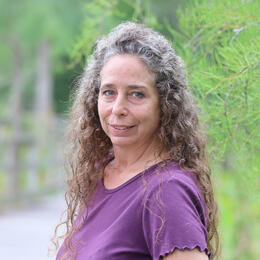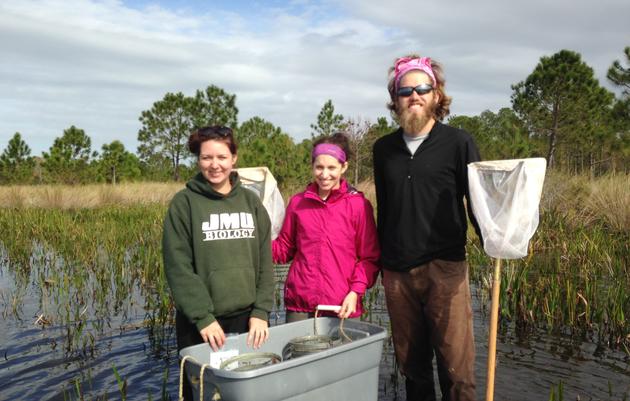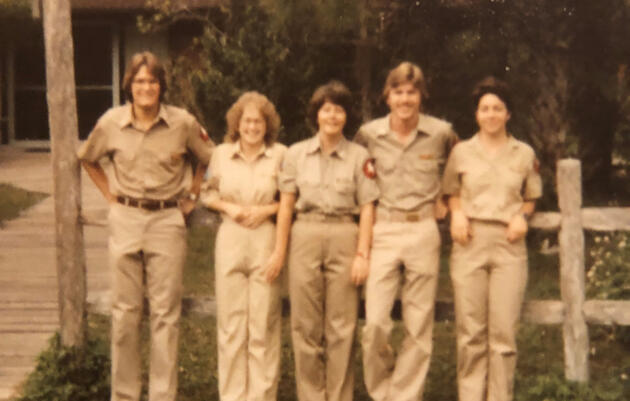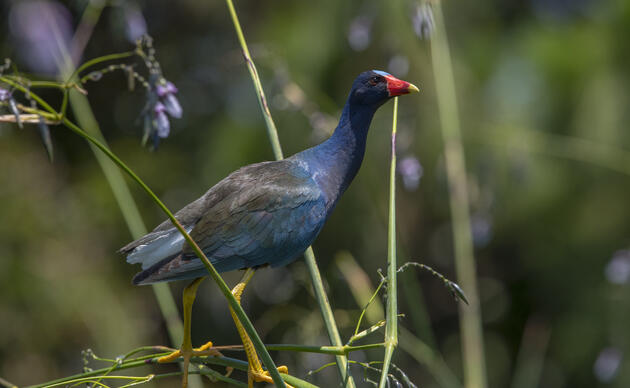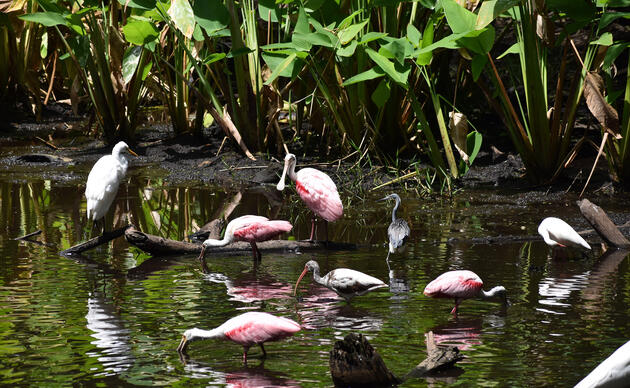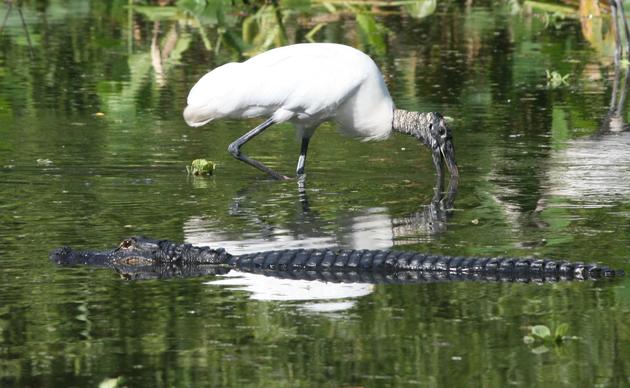Over the decades, Corkscrew Swamp Sanctuary has hosted dozens of interns in its education and conservation programs, with more than 35 interns since 2013. Audubon offered interns and other seasonal staff onsite accommodation in rugged dormitories until the internship program went on hiatus in 2020.
Shawn Clem, PhD, is director of conservation at the Sanctuary and explains how short-term positions like internships provide essential opportunities for early-career professionals and are a win-win for any conservation program.
“These positions increase our capacity for research and land stewardship while helping staff to refine their interests and providing the invaluable field experience and resume-building that will eventually help them get permanent positions in our field. At the same time, our permanent staff gain experience as mentors and teachers, and we all benefit from the contagious enthusiasm that comes from experiencing this amazing ecosystem for the first time,” says Clem.
This year, we were excited to hear from Ayanna Browne, a 2019 conservation intern. Browne tells us that she has completed seven internships, from her first wildlife technician job at Joshua Tree National Park to a job with the Ventura Fish and Wildlife Office through the U.S. Department of State’s Pathways Internship Program.
“Corkscrew was definitely by far the most beautiful site I've worked on,” she says.
Now living in California, Browne grew up in the U.S. Virgin Islands and is pursuing her master's in integrative biology at San Francisco State University. Her research project is the phylogeography and diversification of Lesser Antillean Island bank anoles, with study sites in the Caribbean on the islands of Anguilla, St. Martin, St. Eustatius, St. Kitts, Nevis, Antigua, and Barbuda.
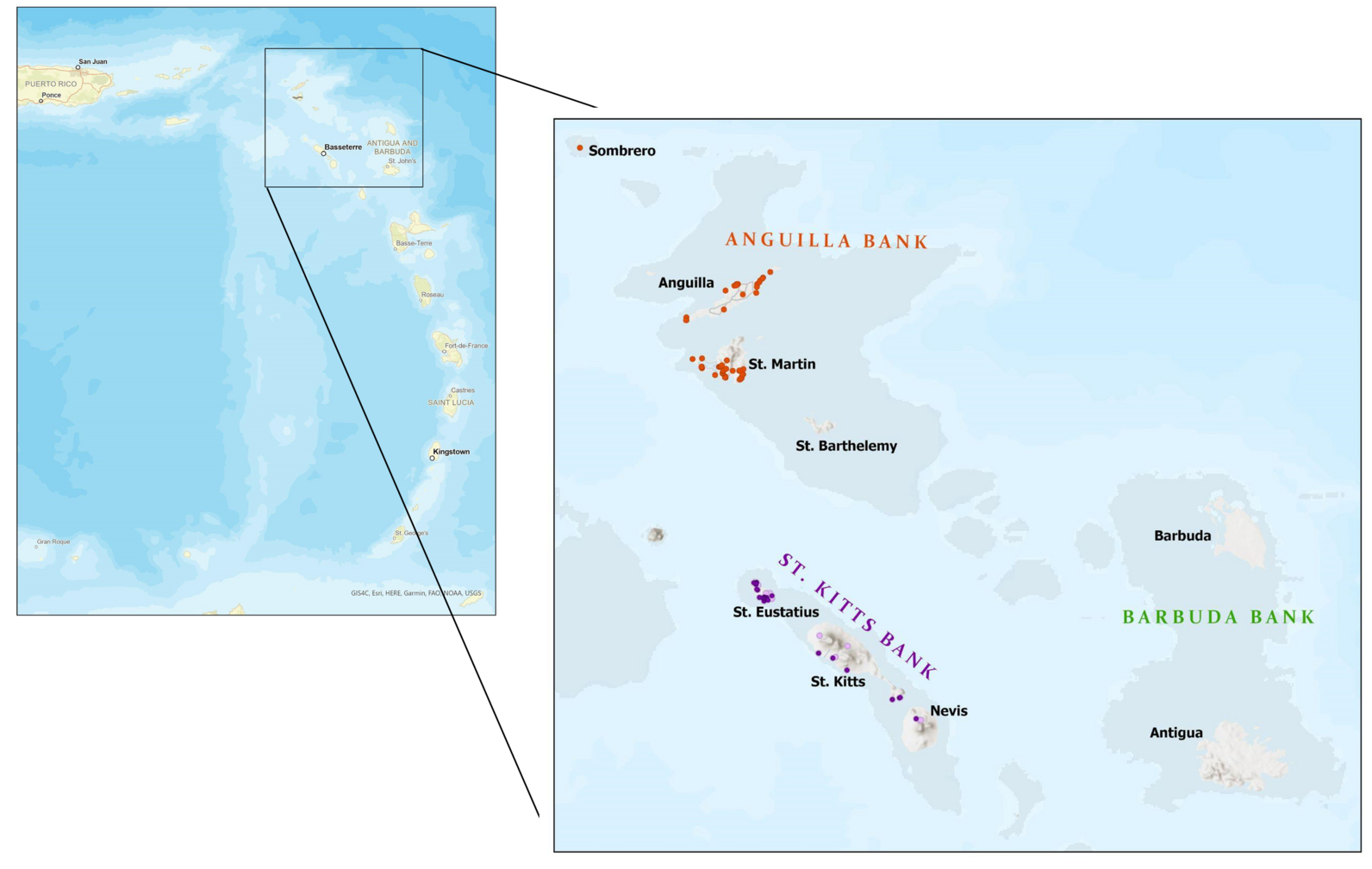
“Antigua and Barbuda are special places to me since they're home to many of my extended family members,” Browne adds. Since there isn't much information available on Lesser Antillean anoles, Ayanna’s research aims to fill knowledge gaps, assess if the diversity of these small lizards will help them withstand future global warming events, and provide a baseline for conservation efforts. She has successfully completed her field season, submitted a collaboration paper on Guadeloupe endemic frogs for publication, and is now extracting DNA from samples she and her team collected.
Browne recalls many enjoyable moments from her time at Corkscrew Swamp Sanctuary, including assisting with prescribed burns, conducting a wading bird survey, and seeing a family of Florida panthers.
“The conservation internship gave me the best of both worlds in land management and research. I plan to take what I've learned and experience into my first permanent position and hopefully bring more similar opportunities to other people of color specifically in the Caribbean where I grew up,” Browne adds.
When asked what advice she would give to a future intern, she says to make a habit of setting reminders. “It will be your best friend! Sometimes we get swept up in our work or maybe an amazing view so I've found this is a great tool for keeping on track,” she adds.
Under a new staffing structure, early career professionals are now employed at the Sanctuary as seasonal conservation assistants. We look forward to new dormitories coming online in the next few years to enable us to further grow this opportunity for future stewards of this special place and beyond, as they go off and do great things.

